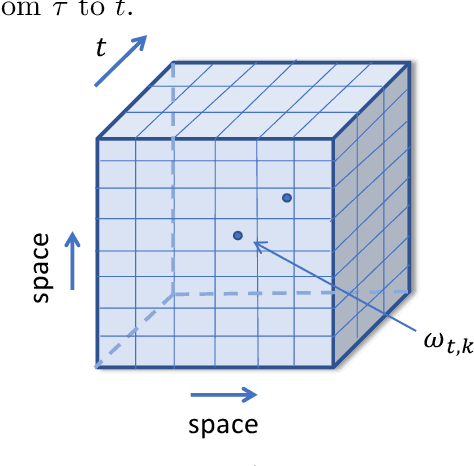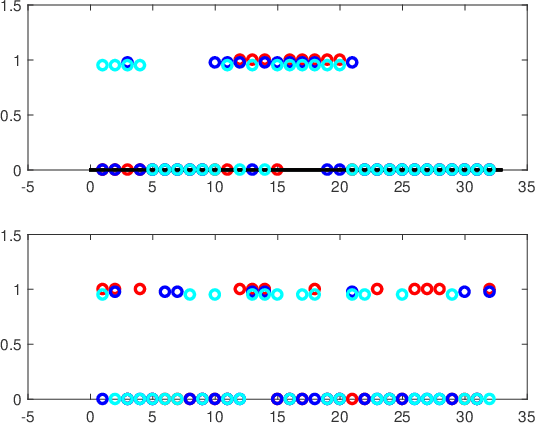Convex Recovery of Marked Spatio-Temporal Point Processes
Paper and Code
Mar 29, 2020



We present a multi-dimensional Bernoulli process model for spatial-temporal discrete event data with categorical marks, where the probability of an event of a specific category in a location may be influenced by past events at this and other locations. The focus is to introduce general forms of influence function which can capture an arbitrary shape of influence from historical events, between locations, and between different categories of events. The general form of influence function differs from the commonly adapted exponential delaying function over time, and more importantly, in our model, we can learn the delayed influence of prior events, which is an aspect seemingly largely ignored in prior literature. Prior knowledge or assumptions on the influence function are incorporated into our framework by allowing general convex constraints on the parameters specifying the influence function. We develop two approaches for recovering these parameters, using the constrained least-square (LS) and maximum likelihood (ML) estimations. We demonstrate the performance of our approach on synthetic examples and illustrate its promise using real data (crime data and novel coronavirus data), in extracting knowledge about the general influences and making predictions.
 Add to Chrome
Add to Chrome Add to Firefox
Add to Firefox Add to Edge
Add to Edge